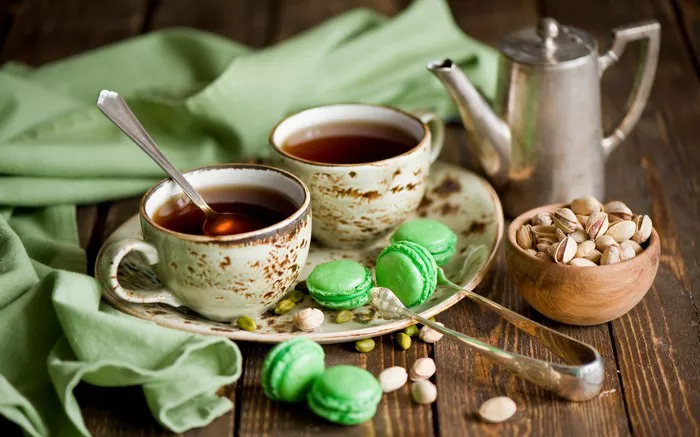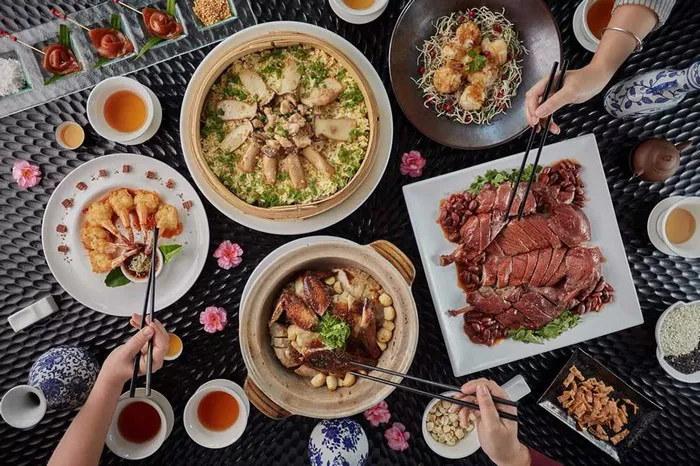Chinese culture is rich and diverse, encompassing a plethora of traditions and customs, including their love for beverages. When it comes to the favorite beverage of the Chinese, there is no doubt that tea holds a special place in their hearts and history. For centuries, tea has been an integral part of Chinese culture, valued not only for its taste but also for its symbolism and health benefits. In this article, we will delve into the world of Chinese tea culture and explore other popular beverages that hold significance in the lives of the Chinese people.
The Significance of Tea in Chinese Culture
1. Tea’s Historical Roots
Tea has a long and illustrious history in China, dating back more than 5,000 years. Legend has it that the Chinese Emperor Shen Nong discovered tea when tea leaves accidentally fell into his boiling water. He found the resulting brew refreshing and invigorating, and thus, the tradition of tea-drinking began.
2. Symbolism and Tradition
Tea is deeply ingrained in Chinese traditions and customs, and it holds a significant place in social gatherings and ceremonies. The Chinese tea ceremony, an elaborate and elegant ritual of preparing and serving tea, reflects respect, hospitality, and appreciation for guests. It is a symbol of harmony and unity, promoting meaningful interactions and fostering a sense of togetherness.
3. Varieties of Chinese Tea
China boasts an astonishing variety of teas, each with its unique flavors, aromas, and health benefits. Some popular types of Chinese tea include:
Green Tea: Green tea is the most common and widely consumed type of tea in China. It is known for its delicate and refreshing taste, and it is rich in antioxidants and health-promoting properties.
Black Tea: Also known as red tea in China, black tea undergoes fermentation, resulting in its robust flavor and darker color. It is a favorite beverage for breakfast and afternoon tea.
Oolong Tea: Oolong tea lies between green and black tea in terms of oxidation levels. Its complex flavors range from floral and fruity to toasty and rich.
White Tea: White tea is the least processed of all teas, and its delicate, subtle flavor makes it a popular choice for those seeking a mild and soothing beverage.
Pu-erh Tea: Pu-erh tea is a fermented tea known for its earthy and distinctive flavor. It is aged for several years, which enhances its taste and character.
The Ever-Present Influence of Chinese Tea Houses
Chinese tea houses have been an integral part of the cultural landscape for centuries. These establishments serve as places for relaxation, socializing, and enjoying a variety of teas. The ambiance of a traditional tea house is warm and inviting, providing a serene setting for friends and family to gather and savor their favorite teas.
In modern times, tea houses continue to thrive as cherished destinations for locals and tourists alike. Visitors can immerse themselves in the world of Chinese tea culture, partake in tea ceremonies, and experience the art of tea preparation firsthand.
Other Popular Beverages in China
While tea is undeniably the most beloved beverage in China, the Chinese also enjoy a diverse array of other drinks, both traditional and modern. Let’s explore some of these popular beverages:
1. Chinese Herbal Teas
Apart from the classic tea varieties, Chinese herbal teas have been used for centuries for their medicinal properties and health benefits. These herbal infusions often consist of various plants, roots, and flowers that are believed to promote well-being and alleviate common ailments. Examples include chrysanthemum tea, known for its cooling properties, and goji berry tea, celebrated for its antioxidant content.
2. Soy Milk
Soy milk is a nutritious and protein-rich beverage made from soybeans. It is a popular choice for breakfast and can be enjoyed hot or cold. Sweetened soy milk or flavored varieties, such as chocolate or almond, are also available and enjoyed by many.
3. Fruit and Flower Infusions
Fruit and flower infusions are a delightful and refreshing choice, especially during hot summers. These non-caffeinated beverages are often made by steeping fresh or dried fruits and flowers in hot water. Popular flavors include hibiscus, lychee, and winter melon.
4. Milk Tea
Milk tea, a fusion of Chinese and British influences, has become increasingly popular in China. It is a combination of black tea or green tea with milk and sugar, creating a creamy and slightly sweetened beverage. Different variations of milk tea, such as bubble tea with tapioca pearls, have gained immense popularity among younger generations.
5. Chinese Liquors
For those seeking stronger beverages, Chinese liquors offer a unique and potent experience. Baijiu, a strong distilled spirit, is the most well-known Chinese liquor and is often consumed during festive occasions and celebrations. It holds cultural significance and is frequently used in toasts and ceremonies.
Conclusion
The favorite beverage of the Chinese undoubtedly remains tea, which has played a central role in their culture and traditions for millennia. Chinese tea culture is deeply rooted in symbolism, tradition, and health benefits, making it an integral part of social gatherings and everyday life.
While tea holds a special place in the hearts of the Chinese, they also enjoy a diverse array of other beverages, from herbal infusions to milk tea and traditional liquors. Each drink represents a unique aspect of Chinese culture and offers a delightful and refreshing experience.
Whether sipping on a classic cup of green tea in a serene tea house or indulging in a fruity herbal infusion on a warm summer day, the diverse and rich world of Chinese beverages reflects the country’s storied history, cultural values, and passion for exceptional flavors. As China continues to embrace modern influences, its love for tea and other traditional beverages remains steadfast, connecting generations and preserving the essence of Chinese identity in each flavorful sip.






















